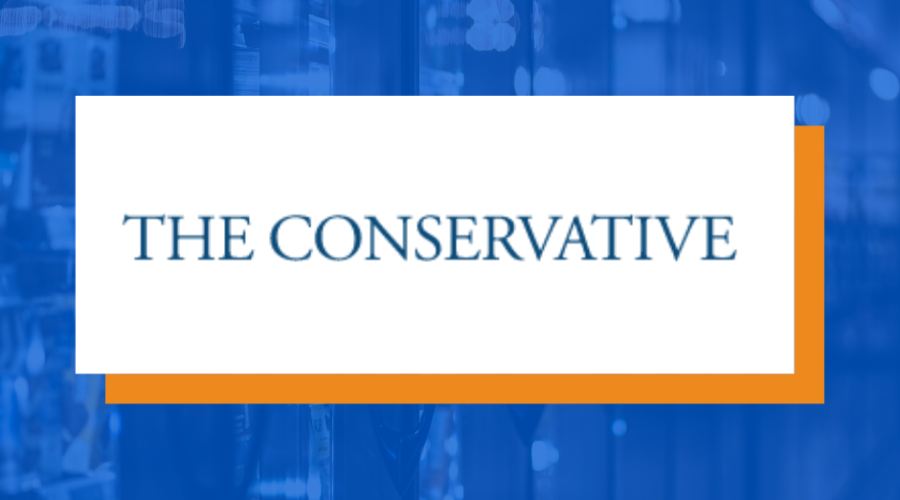Pentingnya Peran Perusahaan E-Commerce dalam Menangkal Pembajakan Produk
Layanan e-commerce atau toko online saat ini merupakan layanan yang tidak bisa dipisahkan dari keseharian kita, terutama kita yang tinggal di kota-kota besar. Meningkatnya pengguna internet secara sangat pesat tentu memiliki korelasi yang sangat berkaitan dengan naiknya jumlah pelanggan yang berbelanja melalui dunia maya.
Saat ini, dengan sangat mudah kita menemukan berbagai produk dan barang yang kita butuhkan dan kita inginkan melalui berbagai layanan toko daring. Mulai dari bahan-bahan pangan, alat-alat rumah tangga, elektronik, produk-produk pribadi, hingga barang-barang kolektor.
Pertumbuhan ini semakin dipercepat dengan adanya pandemi COVID-19 yang masih terus berlangsung hingga hari ini. Pandemi ini telah mengharuskan banyak orang melakukan aktivitas mereka di rumah, dan kelebihan utama layanan toko daring adalah Anda bisa melakukan aktivitas belanja yang sebelumnya harus dilakukan secara fisik di tempat Anda. Diproyeksi, perdagangan online di Indonesia pada tahun 2021 ini akan meningkat 33,2% dari Rp253 triliun tahun 2020, menjadi Rp337 triliun pada tahun ini (indonesia.go.id, 23/2/2021).
Naiknya jumlah pelanggan dan pengguna toko-toko daring juga memberikan kesempatan yang semakin luas kepada para pedangang, terutama para pedagang kecil. Bila sebelumnya, seseorang kalau ingin menjadi pedagang mereka harus menyewa toko fisik, dan memiliki modal yang tidak sedikit, saat ini mereka bisa berjualan dimanapun mereka inginkan, dan mendapatkan pembeli dari seluruh penjuru negeri.
Semakin meningkatnya industri layanan e-commerce juga sangat menguntungkan para pelanggan, karena mereka bisa lebih mudah mendapatkan barang yang mereka inginkan. Sebelum adanya internet, kita harus bepergian secara fisik untuk mencari suatu barang, dan bila barang yang kita inginkan tidak ada di toko tersebut, kita harus berpindah dan mencari toko yang lain. Aktivitas ini tentu bukan hanya menguras energi dan waktu, tapi juga uang untuk transportasi.
Perkembangan layanan e-commerce sepertinya merupakan sesuatu yang sudah tidak bisa kita bendung lagi. Semakin meningkatnya pengguna internet, dan juga semakin cepatnya koneksi internet, maka pada saat yang sama layanan toko daring juga akan semakin meningkat dan menarik semakin banyak pelanggan.
Namun, dengan segala manfaat positifnya, semakin meningkatnya penggunaan dan layanan e-commerce juga menimbulkan masalah baru, salah satunya adalah aspek pembajakan. Semakin mudahnya kita bisa mengakses dan membeli barang pada saat yang sama juga membuat semakin mudah pula para penjual barang bajakan untuk menjual barang-barang palsu yang mereka buat kepada konsumen.
Persoalan mengenai pembajakan sendiri tentunya bukanlah masalah yang baru terjadi di Indonesia. Masalah ini merupakan masalah besar yang sudah ada sejak lama, jauh sebelum internet hadir dan masuk menjadi bagian dari keseharian kita. Bila saat ini kita pergi ke berbagai tempat pusat perbelanjaan pun, dengan mudah kita bisa menemukan berbagai produk barang-barang palsu yang dijual dengan sangat bebas dan harga yang jauh di bawah harga aslinya. Hal ini mencakup berbagai macam barang, seperti pakaian, perangkat lunak, buku, dan juga barang-barang elektronik.
Hal yang sama juga demikian terjadi di toko-toko daring. Bila kita berselancar di dunia maya, maka dengan sangat mudah kita akan menemukan berbagai barang-barang bajakan yang dijual dengan harga yang jauh lebih murah. Tidak jarang, barang-barang yang dijual tersebut terlihat sangat mirip dari barang yang asli.
Pembajakan karya apapun tentu merupakan hal yang tidak bisa dibenarkan, karena hal tersebut merupakan bentuk pelanggaran hak kekayaan intelektual yang merugikan pihak lain. Bila hal ini terus dibiarkan, maka tentu orang-orang akan semakin malas untuk berkarya dan berinovasi, karena mereka tidak bisa mengambil manfaat dari karya dan inovasi yang mereka buat.
Untuk itu, peran serta aktif berbagai perusahaan penyedia layanan e-commerce untuk menangkal pembajakan adalah hal yang sangat penting untuk dilakukan. Tanpa adanya peran aktif dari berbagai perusahaan penyedia layanan e-commerce untuk menangkal penjualan barang-barang bajakan, maka permasalahan ini tentunya akan terus berlangsung berlarut-larut dan akan sangat sulit untuk diselesaikan.
Isu mengenai pembajakan ini juga menjadi fokus berbagai pihak terkait layanan e-commerce. Asosiasi e-commerce, Indonesian E-Commerce Association (idEA) misalnya, menyatakan siap melawan pembajakan, khususnya pembajakan buku yang sangat marak terjadi di berbagai platform penyedia jasa toko daring. idEA juga mengatakan bahwa setiap penyedia layanan e-commerce harus juga ikut mengawasi barang-barang yang dijual di platform mereka (ekonomi.bisnis.com, 27/5/2021).
Hal ini tentu merupakan sesuatu yang patut diapresiasi. Sikap dari asosiasi e-commerce tersbut untuk melawan penjualan produk-produk bajakan di platform toko daring adalah hal yang harus kita dukung. Semoga, para penyedia layanan e-commerce semakin memperkuat komitmen mereka untuk menangkal berbagai upaya penjualan produk bajakan di platform yang mereka miliki.
Sebagai penutup, perkembangan e-commerce yang semakin pesat telah membawa banyak manfaat, baik bagi para konsumen yang ingin berbelanja, ataupun kepada para penjual agar mereka bisa lebih mudah menjual barang dagangan mereka. Namun, perkembangan tersebut juga menimbulkan tantangan baru, salah satunya adalah platform tersebut memberikan ruang yang lebih besar bagi para pembajak produk untuk menjual barang-barang palus yang mereka buat. Untuk itu, dibutuhkan peran aktif dari para penyedia layanan e-commerce untuk menangani permasalahan tersebut.
Originally published here.





